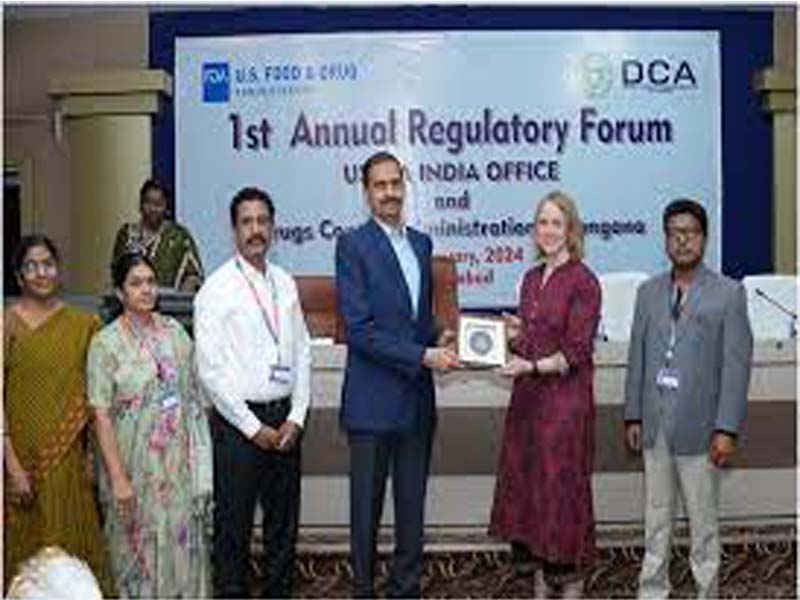One of the states that DCA Telangana is qualified to participate in USFDA inspections
HYDERABAD, FEB 17 : The U.S. Food and Drug Administration (USFDA) has revealed that officers from the Drugs Control Administration (DCA) in Telangana have been included among the eligible states to participate in inspections conducted by the USFDA in India.
The USFDA made the announcement recently in its ”Global Update Newsletter.
The inaugural ‘First Annual Regulatory Forum’ between the USFDA and Drugs Control Administration, Telangana, took place on January 31, 2024, in Hyderabad. Following this collaborative event, the USFDA officially communicated the development through its newsletter, ‘Global Update,’ on February 14, 2024, an official statement said on Saturday.
This significant milestone allows drug inspectors from DCA, Telangana, to be invited to observe specific USFDA medical product inspections. This inclusion is a part of the activities outlined in the ‘Memorandum of Understanding signed between the USFDA and India in 2020.
Telangana now joins Gujarat, Karnataka, and Goa as the fourth state in India to achieve this status. Renowned as the ‘Bulk Drug Capital of India,’ Telangana contributes over 35 percent to the total pharmaceutical production in the country, boasting more than 214 USFDA-registered manufacturing sites.
With a commitment to stringent regulatory standards, the Drugs Control Administration, Telangana, has undertaken various regulatory initiatives, ensuring a robust oversight framework for pharmaceutical manufacturing within the state.
The joint regulatory forum aimed at sharing inspectional best practices for medical products, fostering collaboration, and providing insights into regulatory operations and compliance practices between the USFDA and DCA Telangana. The collaboration is anticipated to enhance regulatory harmonization, elevate compliance with global standards, and improve oversight of pharmaceutical manufacturing processes in Telangana.
This collaboration not only facilitates knowledge-sharing and capacity-building among regulatory authorities but also holds the potential to benefit public health by ensuring the availability of safe and efficacious medicines.(UNI)





